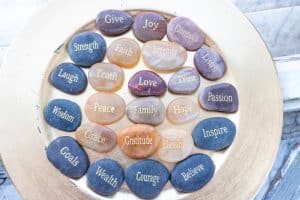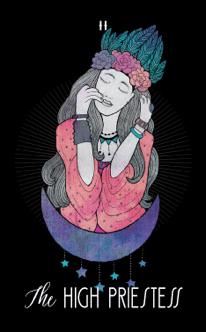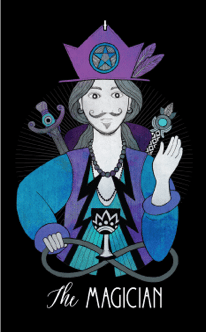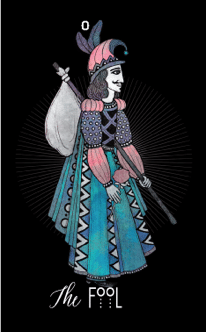
If you want others to be happy, practice compassion. If you want to be happy, practice compassion.
Dalai Lama
When we think of compassionate people a host of the holiest come to mind: Mother Teresa, Jesus, Father Damien, the Dalai Lama and the Buddha. All were noted for their selfless love, care of those who suffer, and each possessed a heart that just wouldn’t stop giving.
The word compassion by definition is from the Latin meaning “co-suffering”. An interesting root definition if you stop to think about it, because if applied as such it creates an interesting dilemma. How can one alleviate the suffering of someone else if they fall to the same level of suffering? Two suffering individuals only make for double trouble.
Instead, the Buddha defined compassion in his way:
Compassion is that which makes the heart of the good move at the pain of others. It crushes and destroys the pain of others; thus, it is called compassion. It is called compassion because it shelters and embraces the distressed.
The Buddha
Compassion for another involves doing something beyond feeling someone’s pain. In fact, feeling another’s pain can immobilize you and turn down the power of your heart, the instrument of compassion. Overly empathic individuals often have difficulty dealing with the emotional overload when confronting the suffering of others. They feel the emotional layers of grief, sorrow, and turmoil as if they were their own. When confronted with someone’s physical pain they may instantly develop the same symptoms. They literally take on the pain and feel it in their bodies. Without asking for it, they become infused with the consciousness of another and in most instances seem unable to stop the unconscious behavior of absorption. These individuals have little or no psychic boundaries. Paranormal researcher Stanley Krippner puts it this way: “they suffer from fuzzy boundaries”. Empaths suffer a great deal until they can override their unconscious tendencies to absorb by elevating their spiritual energy through spiritual practice. Part of that spiritual practice is the laying on of hands such as, Reiki and Healing Touch. As one integrates more of their innate talents as a healer, they usually resolve the fuzzy boundary issues. Therefore, if you are an empath, instead of retracting and guarding your heart, learn to extend it more through the spiritual practice of compassionate giving.
Compassion is the embrace of the heart. Your heart moves to touch the heart of another and rather than dwelling in their pain, you seek to alleviate it as best you can. You may walk an extra mile for a friend to do errands when they are laid up with a injured back, offer them a nice massage or sit and play dominoes to distract them from the pain and help them pass the time. Care giving is compassion in action. Compassion is a virtue we admire and welcome especially when we are on the receiving end or when we witness someone sacrificing something beyond the ordinary in order to give to someone else. In most instances, compassion requires a degree of sacrifice. How much you give is up to you, but when compassionate action feels more like an unappreciated burden, perhaps it’s time to pull back and set some healthy boundaries.
Loving compassionately doesn’t mean you abandon yourself. It means extending yourself with some limits. Not too long ago I ran into a disabled man who had no food, no money and asked if he could borrow a few dollars until his Social Security check came in. He insisted I give him my phone number so that he could pay me back, despite the fact I made it clear I wanted to give him the twenty in my hand as a gift. I forgot all about him until about a month later when I received a phone call from a hospital administrator stating that I was designated the responsible party for Mr. Jones who had been admitted to the hospital. I had to laugh, because the scenario could have been a comedy script titled: “A Do-gooders Nightmare”. After setting the administrator straight, I sat down and thought how sad it was that this man had no one in world other than myself to call. He obviously had no family or friends he could call on, no one to care for him in a time of desperate need. In that moment, I extended myself to him in prayer asking for the intervention he needed most. I put it into the hands of the Supreme Power knowing a greater miracle than me was surely behind the magic curtain.
As difficult as it sometimes is to say no, it usually isn’t the end of the world if you pull back from someone you feel compassion for. You must remember you are not the only well in the desert and that sometimes it takes a whole community to share in the gift of giving.
Some individuals do suffer from “do-gooder mania”. They will literally give you the shirt off their back and tirelessly do things for others, seemingly never running out of gas. “Do-gooders” don’t necessarily feel compassion. They derive their self-esteem by doing good deeds and usually feel like they have to give in order to feel good.
More so than not, we live in a culture where compassionate giving is neglected, frowned upon, seen as a distraction from an already too busy workweek and too much to cope with emotionally. Confronted by someone in need makes some individual’s retract in defense. The only thing they seem able to extend is criticism and judgment assuming that everyone in need is capable of handling their own life without the push of love. If only they knew how heartless they have become and how in need of love and compassion they are.
When in doubt as to whether to extend yourself compassionately to those who ask for your help or who present a need, just go ahead and give compassionately and with joy. Assume every individual in need who enters your life was placed there by divine hands, ones extended out to you so that you could learn the joy of compassionate giving. As the Dalai Lama said, “If you want to be happy, practice compassion.”
Other Spirituality Articles by Ariadne Green
- The Characters in your Dreams
- Kindred Friends and Spiritual Alliances
- The Darker Areas of Your Soul
- Are You a Woman Warrior?
- Wish Fulfillment Dreams
- When a Little Anger Is Good
- Visiting Sacred Spots
- When Angels Walk on Earth
- The High Road to Happiness
- Developing Enlightened Spiritual Attitudes
- The Power of Your Name
- Alleviating Stress the Enlightened Way
- Finding Sacred Moments in Nature
- Natural Disaster Dreams
- Awaken to the Magic of Life
- A Child Can Be Your Guru
- Animal Powers in Dreams
- Critical Thinking as a Spiritual Practice
- The 5 Most Common Dreams
- Renewing Your Life After a Loved One’s Death
- The Metaphysical Qualities of Your Birthstone
- Dream Precepts: Unraveling the Meaning of Your Dreams
- Manifesting Your Dreams: Wishful Thinking or Not?
- Are Spirits Knocking on the Door of Your Dreams?
- Pregnancy Dreams: A Glimpse Into the Creative Process











